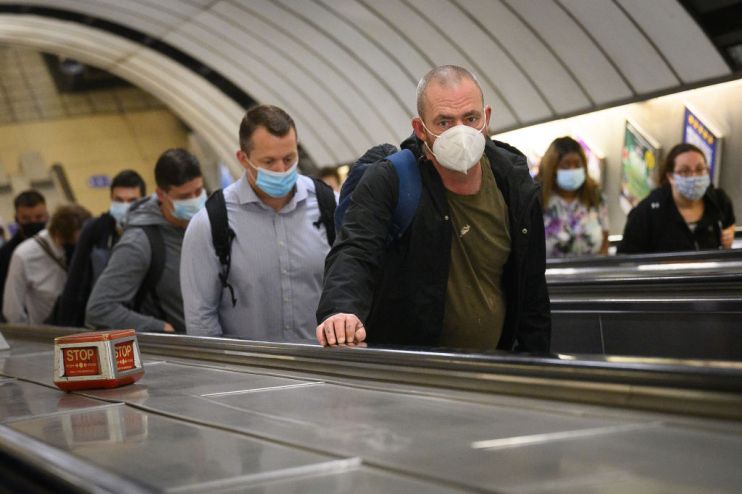UK businesses grow at fastest rate in five years but employment drops

The UK economy’s private sector rebounded at its fastest rate in five years in July, according to the final reading of a closely watched measure, as the government eased coronavirus restrictions.
The IHS Markit/Cips composite purchasing managers’ index (PMI) jumped to 57 in July from 47.7 in June. It was slightly lower than a “flash” estimate of 57.1 but still the fastest growth since 2015. A score above 50 indicates expansion.
The UK’s dominant services sector also grew at the quickest rate in five years. The services PMI rose sharply to 56.5 in July from 47.1 in June. The latest reading was just below the flash estimate of 56.6.
July’s rapid improvement was from a low base, however, with the economy ravaged by the coronavirus lockdowns of the spring.
Some analysts have said the UK economy could take up to four years to recover its pre-coronavirus size. It contracted by 20.8 per cent in April alone, by far the worst crash in recent memory.
Worryingly, firms continued to lay off workers in July. Around one-third of the purchasing managers’ who responded to data firm IHS Markit’s survey reported a drop in employment. Only 11 per cent signalled a rise.
The UK government has eased coronavirus restrictions over the last three months. It allowed “non-essential” retailers to reopen in June and pubs, restaurants, cafes and hotels to resume business at the beginning of July.
Unemployment and the virus could derail UK economy
“Higher levels of service sector output were almost exclusively linked to the reopening of the UK economy after lockdown measures and the subsequent return to work of employees and clients,” said Tim Moore, economics director at data firm IHS Markit.
Firms across the UK private sector reported higher customer demand in July. New business volumes increased for the first time in five months and at the fastest pace since January.
Yet Moore said that “the weakness of the employment figures reported in July is clearly a cause for concern”. He said it is “likely to hold back the longer-term recovery in business and consumer spending”.
Duncan Brock, group director at Cips, the Chartered Institute of Procurement & Supply, said rising coronavirus cases were also a worry for the UK economy.
The government suspended the next part of its reopening plan last week in response to worries about new cases. And it instituted local lockdowns in parts of the north west.
“The threat of further pandemic lockdown threatens to derail continuing progress,” Brock said.
“Business will have to continue to absorb any additional costs coming their way or face the prospect of having to close their doors permanently.”